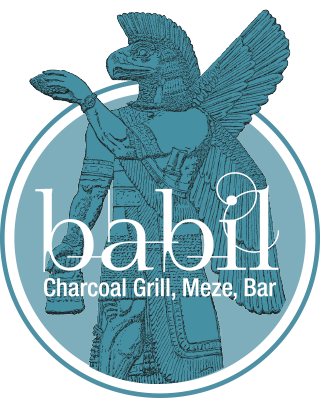COLD MEZES (Starters)
|
| MEZE PLATTER 1 £11.95 — P/P — An appetising selection of six traditional hot and cold mezes |
| MEZE PLATTER 2 £16.95 — Serves two people — An appetising selection of eight traditional hot and cold mezes |
HOT MEZES (Starters)
|
Please ask for details of today soup Tentalising charcoal king prawns laced with dried tomartoes and balsamic syrup Sauteéd cubes of lambs liver in butter with garlic caramalised onions, mixed herbs, mixed spices and a hint of lemon juice Spinach and feta chees wrapped in filo pastry and deep fried to perfection A classic meze prepared with a blend of crushed chickpeas, tahini, garlic, olive oil and lemon topped with succulent barbequed diced lamb cubes with pen fried pine kernels and herbs pourd over for an excuisit taste. Chunks of grilled helloumi cheese is best served in its origional form, plain, for absolute taste. Sliced mushrooms sauteéd in butter, garlic, parsley and lemon juice and topped with melted cheddar cheese Grinded chickpeas blended with broad beans and shallow fried to perfection and served with a chioce of sweet chilli or hummus Tiger Prawns sauteéd in butter, with garlic and mixed herbs combined in a special tomato sauce Fresh squids tossed in flour, powdered paprika and served with a choice of sweet chilli sauce or tarter sauce Traditional Turkish spiced sausage simply barbequed and served with traditional garnish |
| MEZE PLATTER 1 £11.95 — P/P — An appetising selection of six traditional hot and cold mezes |
| MEZE PLATTER 2 £16.95 — Serves two people — An appetising selection of eight traditional hot and cold mezes |
Lamb & Chicken DISHES
LAMB DISHES
CHICKEN DISHESCOMBINATION KEBABSSPECIALSSPECIAL WRAPSCASSEROLE DISHES |
Vegerarian Dishes DISHES
|
BBQ FISH
|
KIDS MENU
(All served with chips)
|
SIDE ORDERS
|
SALADS
|
Desserts
|





